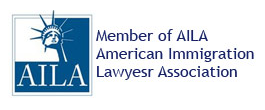Serving Clients throughout South Florida, Nationally & Internationally
Call Now: (954) 382-5378
Investor Visas
Free Emergency Same-Day Consultations
Payment Plans Available
Free Case Evaluation
Hours:
Request Free Consultation
Hero Request Form
Thank you for contacting us.
We will get back to you as soon as possible
Please try again later
Invest your way to the United States
We have over a decade of experience helping investors obtain visas through investments. Whether it be the E2 visa, or EB-5 visa, which grants permanent residency, we will be your guide through this otherwise complex process..
Contact us today to secure your investor visa!
E-2 Visas for Investors
The E-2 treaty investor visa is one of the most popular visas used by foreign investors to own and operate a business in the United States. Not only is the E-2 a very convenient immigration vehicle for running a company in the U.S., but it also allows spouses to work.
However, E-2 visas are only available if a treaty of commerce and navigation or bilateral investment treaty exists between the U.S. and the investor’s country of citizenship. Are you a good candidate for an E-2? For a free same-day consultation contact us today.
Overview
Treaty investor visas allow nationals from countries that have the E-2 treaty in effect with the U.S. to enter the U.S. to develop, conduct, and oversee a business investment enterprise in the U.S. The visa holder will be the principal investor and may transfer key employees, such as managers, executives, or persons with specialized knowledge to the U.S. as well. To qualify, the majority ownership of the U.S. enterprise must be by individuals who are also citizens of the same treaty country as the principal investor.
E-2 visas issued inside the U.S. are often easier to obtain because they have a lower investment requirement. They are valid for two years. E-2 visas can be extended almost indefinitely, usually in two-year increments, as long as the U.S. enterprise or investment continues to qualify.
While E-2 visa stamps issued by U.S. Embassies or Consulates can be valid for as long as five years, they generally require more initial investment capital and can face a higher level of scrutiny by consular officers than is generally applied to E-2 cases approved by the USCIS inside the U.S. However, any E-2 investor who wishes to travel abroad during his or her E-2 visa must obtain an E-2 stamp at a U.S. Embassy or Consulate and must be prepared for a higher level of scrutiny regarding the investment amount and whether or not the U.S. investment enterprise currently employs or will employ U.S. workers in the near future. Generally, the higher the investment amount and the more employees on the company payroll, the higher the probability of approval.
Those holding E-2 visas (obtained at the U.S. Embassy or Consulate) may travel in and out of the U.S. or remain inside the U.S. continuously until the E-2 visa expires. Since there is no legal limitation on the number of extensions that may be granted, E-2 visa holders often live in the U.S. on a prolonged basis, provided E-2 qualifications are maintained. While E-2 visa holders may work and live temporarily in the U.S., they are restricted to working only for the specific investor-owned business which was the basis for the E-2 visa issuance. However, that E-2 business can change the type of business it operates at any time as long as the company continues to maintain full business operations and employ personnel.
Qualifying E-2 Countries
Many countries have E-2 investor visa status. This includes Argentina, Armenia, Australia, Austria, Bangladesh, Belgium, Bosnia-Herzegovina (Yugoslavia), Bulgaria, Cameroon, Canada, China (Taiwan), Colombia, Croatia (Yugoslavia), Republic of Congo, Democratic Republic of Congo (former Zaire), Costa Rica, Czech Republic, Ecuador, Egypt, Estonia, Ethiopia, Finland, France, Georgia, Germany, Grenada, Honduras, Ireland, Italy, Jamaica, Japan, Kazakhstan, Korea, Kyrgyzstan, Liberia, Luxembourg, Macedonia (Yugoslavia), Mexico, Moldova, Mongolia, Morocco, Netherlands, Norway, Oman, Pakistan, Panama, Paraguay, Philippines, Poland, Romania, Senegal, Slovak Republic, Slovenia (Yugoslavia), Spain, Sri Lanka, Suriname, Sweden, Switzerland, Thailand, Togo, Trinidad and Tobago, Tunisia, Turkey, Ukraine, UK, and Yugoslavia. Investors from countries that do not have an E-2 treaty with the U.S. but who have dual citizenship also qualify
Family Members
The spouse and children (under age 21) of the E-2 worker are issued E-2 visas. A great benefit of this type of visa is that spouses can work if an application for work authorization is made, and children can legally attend school.
Qualifications and Procedures
As mentioned above, qualifying for an E-2 requires that a substantial cash investment be made in the U.S. business. While the regulations do not specify the exact dollar amount, experienced immigration attorneys advise no less than $100,000, which includes product inventory and liquid assets. However, in order to satisfy the capitalization test, generally the dollar investment must be large enough to start and operate a business of the type in which the investment is made, which may be different for various types of businesses.
A weaker E-2, with less dollar investment, has a chance of being approved at a USCIS service center inside the U.S. However, as detailed earlier, if the E-2 investor wishes to travel, regulations require that an E-2 visa is made at a U.S. Embassy or Consulate outside the U.S. In such cases, depending upon the consular officer, an E-2 case that was approved in the U.S. can still be denied for an E-2 visa at the Embassy or Consulate. For that reason, care should be taken when filing the initial case to make it as strong as possible if travel is later required. One strategy is to obtain the initial E-2 status inside the U.S. through the USCIS service center (using 15-day premium processing), then upon approval, operate the business for several months or more with as many employees as possible to build a stronger case for eventual application of the E-2 stamp at the U.S. Embassy.
Processing Time
When inside the U.S. applying at an immigration service center, the processing time can be as short as 15 days (premium processing). If approved, you will get a two-year E-2 status, not a visa. You may remain inside the U.S. for the duration of your E visa. However, if you wish to travel outside the U.S., you will need to go to the U.S. Embassy or Consulate to be issued the actual E visa stamp.
Processing times at the U.S. Embassy or Consulate can vary, depending upon what your country of citizenship is.
Start Today!
To satisfy the immigration service's strict requirements for this type of visa based on your qualifications as a treaty investor, our attorneys will thoroughly review your case to determine eligibility, carefully prepare your petition, and submit it to the USCIS. To boost your case, we will emphasize your satisfaction of the regulations, including evidence to support or prove your eligibility. This could include your foreign company and U.S. enterprise documentation, as well as your essential skills and qualifications.
Let us fully review your case with a free consultation. We offer honest advice that is personalized to your needs. You can trust us to prepare your case, gather documentation, handle USCIS, and represent you every step of the way. We look forward to working with you!
EB-5 Investor Visas
The EB-5 investor visa is one of the quickest, most convenient ways to obtain a Green Card in the U.S. through investment. Foreign investors and their families can receive conditional Green Cards in as little as six to eight months with permanent residency after two years.
Are you a good candidate for an EB-5 investor visa? For a free same-day consultation contact us today.
Overview
To encourage foreign investment in the United States, create jobs for American workers, and help the U.S. economy, congress created the EB-5 immigrant investor visa category as part of the Immigration Act of 1990. The EB-5 visa was designed to attract foreign investors desiring to obtain a Green Card in the U.S. in exchange for investing a substantial amount of capital in a business enterprise. Under the regulations, there are 10,000 visas available each year for such investors with 5,000 reserved for investors who invest in one of the many EB-5 pilot programs designated for areas in the U.S. that have high levels of unemployment.
Types of Investments
An EB-5 investor must invest in a "new commercial enterprise," with his or her investment funds "at risk." Meaning they cannot be guarantedd by a mortgage or other type of security instrument.
There are two main types of investments. A direct investments is where an investor funds a new commercial enterprise directly, and a regional center investment is where an investor pools their money with others through a government-approved regional center to fund larger projects.
Direct Investment:
This involves starting your own business or purchasing an existing one, directly managing the investment and taking full responsibility for job creation.
Regional Center Investment:
Investors contribute to a regional center which then invests in larger projects, often with the benefit of potentially easier job creation verification due to the scale of the project.
Investment Amount
To qualify for an EB-5 visa, an investor is required to invest a minimum of $1,050,000. However, if the investment is located in an economically depressed area called a "targeted employment area," the investor may be eligible to invest a reduced amount of $800,000.
Job Creation
One of the main requirements of the EB-5 program is that an investor’s investment must lead to the creation of 10 full-time jobs for US workers.
How the jobs get calculated depends on whether an investor makes a direct investment or whether they invest in a regional center project.
For direct investments, the only jobs that count toward the job creation requirement are the jobs that are directly created by the new commercial enterprise; where the new commercial enterprise is the employer.
Regional centers can count direct jobs and indirect jobs. Indirect jobs are jobs “that are held outside of the new commercial enterprise but are created as a result of the new commercial enterprise.” This means that regional centers are able to take credit for jobs that they don’t directly create. This includes jobs created as a result of the project the regional center is developing.
Reviews
Become a Citizen
Call now for a free same-day consultation to talk about your citizenship goals
(954) 382-5378
Related Services
Caroly Pedersen is an excellent immigration lawyer!
- David C. via Google
Learn More About
American Immigration Law Center
Located in Weston and Miami, Florida American Immigration Law Centers specializes in family immigration, employment immigration, Green Cards, and citizenship. Free emergency same-day consultations. Payment plans available. Free case evaluation. Call now.


Business Hours
- Mon - Fri
- -
- Sat - Sun
- Closed

Share On: